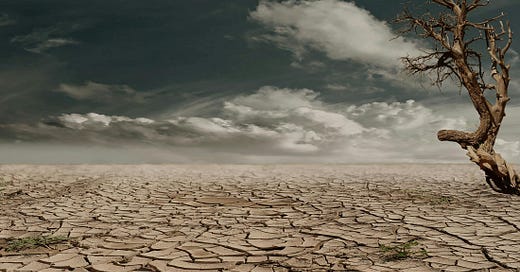There’s a famous parable of Jesus – the Parable of the Prodigal Son. For those who don’t know the story, it tells of a man with two sons. The younger, restless and sure of himself, demands his share of the inheritance early, eager to chase his own adventure. Although it’s not in the text, I’ve always suspected his elder brother cautioned him, perhaps even pleading with him, not to throw everything away. But his younger brother didn’t listen. Off he goes, only to squander his inheritance on reckless living.
Broke and humbled, the younger son returns home, intending to ask for a place among the hired servants, his shame holding him back from expecting anything more. Before he even gets to the house, his father runs to meet him with tears and open arms, lavishing him with a robe, a ring, and a feast.
Meanwhile, the elder brother, who stayed behind, who bore the weight of duty, who watched the years slip by without celebration, stands outside, bitter. Seeing the party thrown for this prodigal son, he feels overlooked and slighted, his loyalty taken for granted, his earlier warnings ignored. Part of him must want to go right up to his brother and say, “Why didn’t you listen to me? I told you so!” As a result, he stands apart, not knowing which way to turn.
The story lingers on this moment of choice: will the elder brother let pride keep him outside, nursing his rightful grievances? Or will he step into the joy of reunion, accepting that community is built on welcoming each other home, mistakes and all?
It’s not just an ancient story. We face the same crossroads every day. There are things we were right about – personally, professionally, politically – that others only came to understand later. Maybe you’ve felt it as a parent, or a sibling, or a friend. Someone a little more removed, with more history or clearer judgment, often sees what’s coming when another is too swept up in excitement or fear to notice.
On a national level, think of the lead-up to the Iraq War. Many foreign policy experts, intelligence officers, even insiders in the administration warned there was insufficient evidence of weapons of mass destruction. Their caution was brushed aside by louder, more confident voices. In hindsight, their restrained, skeptical approach was vindicated, but the war’s devastation still came.
Or the 2008 financial crisis. A handful of economists and investors warned of a housing bubble. Most people ignored them, ridiculed them, dismissed them as doomsayers – until the collapse. Like the elder brother, these cautious voices had to watch the disaster they feared unfold, carrying both the burden of foresight and the heartbreak of living through it anyway.
It’s a painful place to stand: first when your concerns are mocked, then when the consequences play out in real time, and even later when people start waking up to what you saw all along. Of course there’s a fierce urge to climb the highest summit and shout, “I told you so! Why didn’t you listen to me?”
Psychologists call it moral superiority bias – our tendency to see ourselves as more ethical or insightful than others. And, yes, sometimes we are more insightful. Saying “I told you so” gives a quick rush of self-validation, confirming our inner story that we were the wise one all along. But it serves no real purpose beyond that fleeting ego boost. In fact, it usually deepens the divide, pushing others to justify their past choices, because they see themselves as the heroes in their own stories too.
So the question becomes: do we stand outside the party, arms crossed, clinging to our righteousness? Or do we choose the harder, more life-giving way – walking back inside, embracing those who couldn’t see before, and helping to rebuild together?
One of the first steps is banishing “I told you so”— not just the words, but the posture behind them, as well. Most of us are tactful enough not to say “I told you so” outright, but letting go of the sentiment frees us, too. It allows us to move from moral high ground into genuine compassion, recognizing that everyone makes the best choices they can with the information, fears, and hopes they carry in that moment.
What have you been wrong about in your life? If nothing comes to mind, borrow one of mine—I’ve had some doozies. Because we’re human: sometimes right, sometimes wrong, sometimes clueless. Remembering that helps us forgive ourselves when we stumble and extend grace to others when they do the same, even when the consequences are calamitous.
We do it not to excuse harm, but because it’s healthier – emotionally, physically, societally. Forgiveness lowers stress, anxiety, and depression, and is linked to better health overall. It’s not forgetting or excusing; it’s choosing relationship and repair over momentary self-satisfaction.
Just as the father wanted the elder son to join the feast, our best hope is to welcome back those who strayed, those who refused to see, those who failed. That’s how mutual trust and solidarity begin to mend. Punishing wrongs doesn’t bring us closer to this better world I’ve been speaking of.
And if you don’t have your own vision of that better world, let me loan you mine. I want a world where each person is encouraged to grow their unique gifts. A world where we’re accepted for who we are, each carrying a spark of the Divine. A world measured not by how far we get ahead individually, but by how well we care for those being left behind. A world where this care extends to the natural world – plants, animals, insects, oceans. A world where Love is the ultimate aim.
It’s the kind of world the father in that story longed for — one where every person knows they belong, not because they never erred, but because love always makes room.
I don’t know how the story of the Prodigal Son ends. I don’t know whether the elder brother finally sets down his pride and goes into the party. I hope he does. I hope he remembers that joy, wherever it can be found, is a wonderous thing. That expanding love, forgiving others, growing through our hurt, is how we make our way through the dark, toward a greater world of love.
Joni Miller, Ph.D., is a writer, researcher, spiritual coach, and speaker who uses her knowledge, education, and love of all things spiritual to help spiritual wanderers find a place they can call home, navigating by the light of Love. www.SpiritualGeography.net
Photo by Pixabay: https://www.pexels.com/photo/photo-of-brown-bare-tree-on-brown-surface-during-daytime-60013/













Share this post